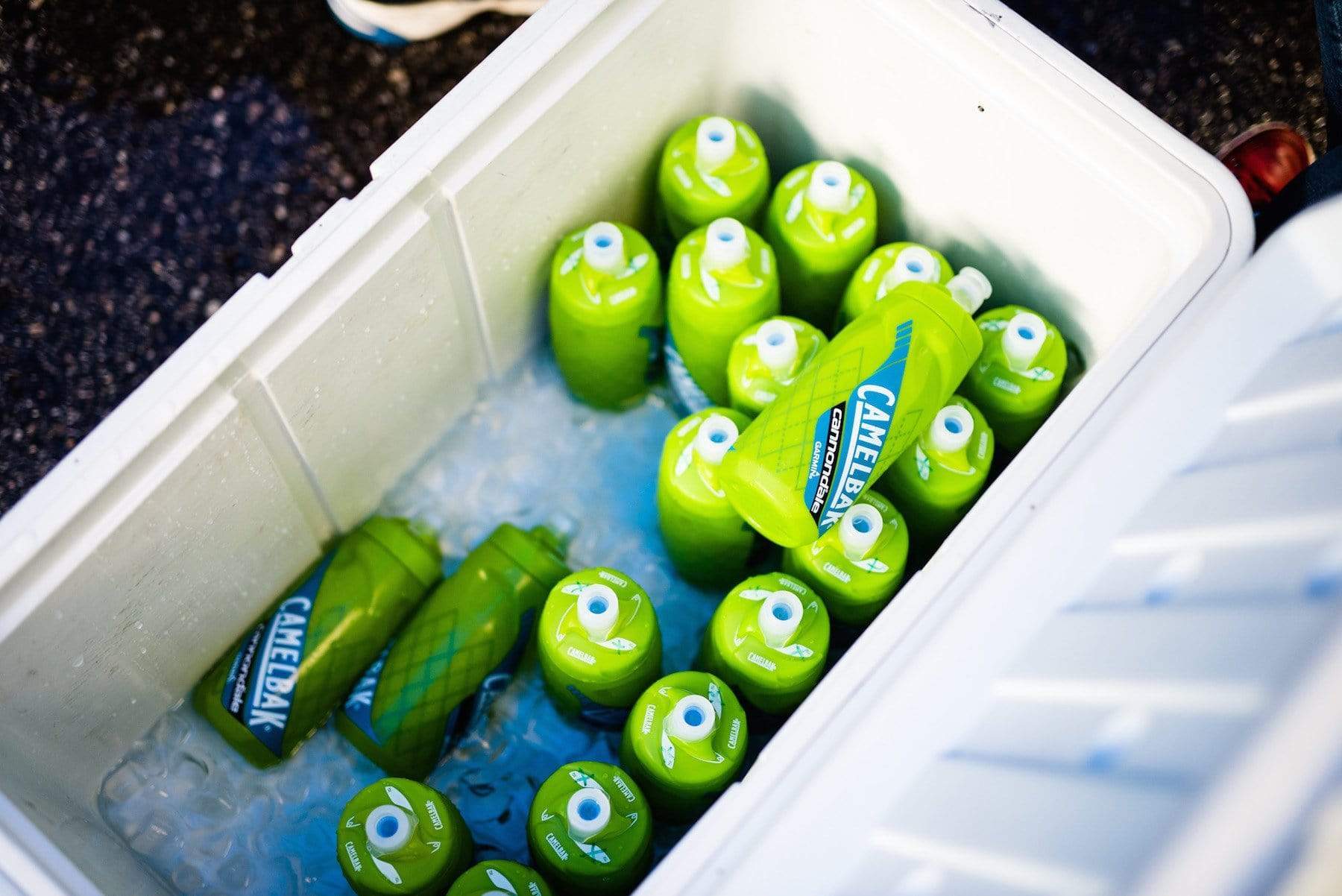
In any athletic endeavor, hydration plays an important role in an athlete’s performance. Most people understand this to be fact, but often there is no distinct plan for ensuring proper hydration.
This article was written by Dr. Kevin Sprouse. Dr. Sprouse is a team physician for the Cannondale Drapac Pro Cycling Team. He has a degree in exercise science and has board certifications in both Sports Medicine and Emergency Medicine. He practices at Podium Sports Medicine in Knoxville, TN.
In any athletic endeavor, be it the Tour de France or your local “Tuesday Night Worlds”, hydration plays an important role in an athlete’s performance. Most people understand this to be fact, but often there is no distinct plan for ensuring proper hydration. Athletes know they should “drink more”, but few have a defined concept of what that means.
You’ve probably heard the stats quoted. Dehydration resulting in as little as 1-2% decrease in body weight can negatively impact an athlete’s performance. A loss of 5% can lead to 30% less power output. That has been the mantra for years, but there still is some academic discussion on this topic. There are those who point out that the winners of marathons and Ironman races are often some of the most dehydrated athletes in the field at the finish. Haile Gebrselassie is rumored to have lost 10% of his body weight (in water) during his world-record setting marathon performance. Furthermore, over-hydration is a dangerous reality. Given all of this, how should an athlete approach their hydration strategy? It can be confusing.
As with most things in medicine and science, the answer is individual. The best plan is determined with a bit of personal monitoring and some trial and error. In this article, I’ll discuss how you can lay out a plan for determining your ideal hydration strategy.
The concept of adequate or optimal hydration during an event may be up for debate, but everyone seems to agree that starting a competition in a state of dehydration is detrimental to performance. You should arrive at the start line fully hydrated. There are some simple things you can do to ensure this. Minimize caffeine and alcohol intake in the 2-3 days before a race. Drink plenty of water during this same time, but don’t over drink. Monitor your weight each morning to see if you are gaining or losing weight, most of which will be fluid. If you want to get a little more sophisticated, you can check the concentration of your urine. A visual check is helpful (it should be “straw colored”), but you can test the “specific gravity” of your urine with a simple dipstick. We do this every day at cycling stage races like the Tour de France. If a cyclist has a concentrated urine (specific gravity > 1.015), he will be instructed to drink an extra liter or two of fluid before bed.
Humans tend to dehydrate overnight as well. A significant amount of water is lost during sleep, and this should be corrected when you awaken. Hopefully your sleep is sound enough that you are not waking up regularly to drink throughout the night. If so, this job commences when you roll out of bed. Start every day with a tall glass of water. Feel free to add some lemon juice and/or apple cider vinegar to that as well, but avoid sugary solutions. Your body will thank you for starting your day this way!
Now that you’ve optimized your hydration leading into the day’s training or racing, what should you do while you work up a sweat? Start by determining your sweat rate. This is really quite simple. Just weigh yourself before and after exercise. Whatever weight you lose while training or racing can be attributed to fluid loss. (Of course, it can be the case that you gain weight while out there. This is neither good for your health or your performance.) If you lose a kilogram during an hour of running, then you know you’ve lost 1 liter of water during that hour. You will want to also account for any fluids taken in during that time, as well as urination.
Measuring fluid loss after a race can be especially helpful. Recommendations generally suggest that athletes “drink to thirst” while training or racing, but everyone is different. One athlete’s thirst mechanism may not be as finely tuned as another’s, so knowing how you perform in the face of fluid loss is important. Are you going to set a record while losing 10% of your body weight? Do you do better to keep your finish weight within 1% of your start weight? Look at the numbers and find out. It’s really no different than taking a look at your pacing, splits, or power numbers. Review hydration status as a metric in your race performance and start to learn more about how your body works best.
While racing or training, fluid replacement is obviously important, regardless of the rate of intake. You have a number of options for hydration mixtures. In general, a solution with electrolytes and carbohydrate is going to be better absorbed than water alone. This does not mean that the product containing the most electrolyte is best, nor am I a fan of athletes getting a large percentage of their calories from their hydration. One of my favorite product lines for hydration is from Skratch Labs. If you take a look at their label, there are moderate amounts of electrolytes and carbohydrate. This is elegantly designed to enhance hydration with a simple and palatable formulation. They also have options for mixtures with higher concentrations of electrolytes when needed.
After the training session or race is completed, you do want to ensure that you fully replace the fluid lost. Again, if you’ve not gone through the process of weighting yourself to determine losses, this replacement process is somewhat of a shot in the dark. If you’ve lost 2-3 pounds while training (1-1.5kg), you’ll want to replace that with slightly more than you lost. In this scenario, you would aim for an added fluid intake of about 2 liters. In this setting, water is fine to use. It is assumed that you will also be eating during this time, so you are receiving electrolyte intake at the same time. You may also want to use an electrolyte or rehydration solution, especially if you are not eating immediately after your training or racing.
Remember, your hydration goals are as follows:
- Arrive fully hydrated at the start line for racing or training.
- Know your sweat rate and fluid losses.
- Replace fluid at an individually appropriate rate while training or racing.
- Aggressively rehydrate after your race or training session so that you can be ready for the following day.
Consider your hydration to be at least as important as your caloric fueling. Many athletes address their nutrition with great care, but they fail to pay the same attention to their fluid intake. Don’t make this mistake in your training and racing! Take the time to determine your sweat rate, monitor your fluid losses, and develop a simple plan for staying optimally hydrated.
